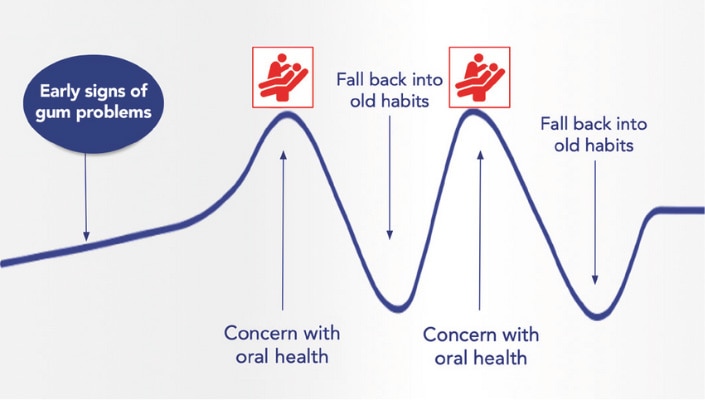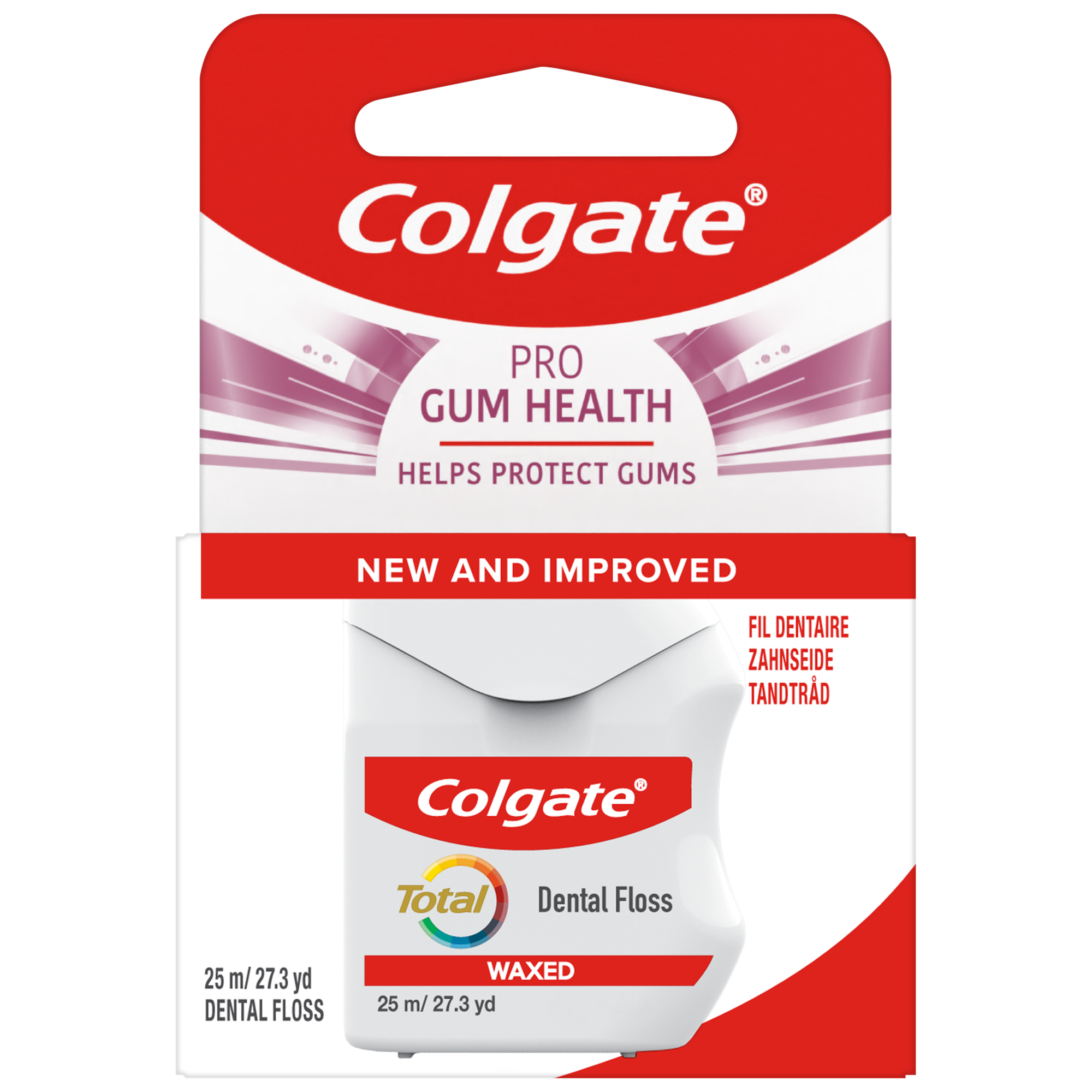
Patients with gum problems can experience a long journey

The patient journey may start with noticing gum problems, often when toothbrushing. Some will not act at this stage. As these signs of gum problems progress, patients can become more concerned about their oral health. This peak of concern may prompt them to visit their dental practice and or seek advice online or from family and friends. They may act on any advice given during the peak of concern, but they may also fall back into their old habits. This can lead to a roller coaster ride for many patients.
Dr Wadia concluded highlighting the barriers which can prevent patients acting to improve their gum health, such as lack of awareness, resignation, or misperception.3
Patients face different barriers preventing
them from acting on their gum health



These insights led a discussion on how general dental practice could empower patients to take greater ownership of their gum health.
The percentage split of responsibility was highlighted as being important in letting the patient know that it’s 80% about what they do at home and 20% about what their dentist can do for them
They discussed behavioural change and motivation and that both of these depend on the patient. Some will act on advice and change their regime immediately, but others will fall back into their old habits
The group then explored the false assumption that knowledge is enough to effect behaviour change in those with a lack of awareness
Round table discussion contributors (left to right):
Nick Barker – Clinical Lecturer in MSc in Periodontology and Honorary Professor School of Health and Social Care at University of Essex.
Fiona Sandom – Project Specialist at All Wales Faculty of Dental Care Professionals and Dental Therapist.
Chinwe Akuonu – General Dentist.
Pete Clarke – Consultant in Restorative Dentistry at the University of Manchester Dental Hospital and Clinical Lecturer in MSc in Periodontology at University of Manchester.
Reena Wadia – Specialist in Periodontics.
Vinay Raniga – General Dentist and Political Leadership Scholar.
Victoria Sampson – General Dentist researching the impact of oral microbiome on overall health.
Yewande Oduwole – General Dentist.
Amit Patel – Specialist in Periodontics.
References:
1. NHS Digital. Adult Dental Health Survey 2009, England, Wales and Northern Ireland.
2. Public health England. Oral health survey of adults attending general dental practices 2018.
3. Gum Journey Europe. Quantitative survey n= 1079. men & women 18-75 years.
4. Howren M.B. (2013) Adherence. Encyclopedia of Behavioral Medicine. Springer, New York.
5. Fine D, et al. (2019). (CRO-2018-05-CHX ED).
6. With continued use, vs baseline. Hu D, et al. JADA 2019:150 (4 suppl): S32-S37. 7. Data on file. Colgate-Palmolive Company, 2022.
8. Vs. CPC alone. Rösing CK, et al. Braz. Oral Res. 2017;31:e47.
9. Vs a competitive mouthrinse with essential oils in an alcohol-free base. Langa GPJ, et al. JADA2021:152(2): 105-114.
10. Data on file. Colgate-Palmolive Company, 2022.
Join us
Get resources, products and helpful information to give your patients a healthier future.
Join us
Get resources, products and helpful information to give your patients a healthier future.







